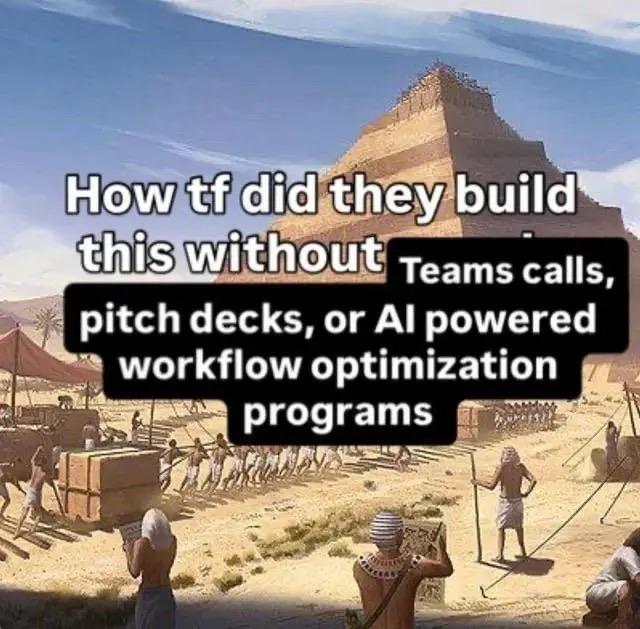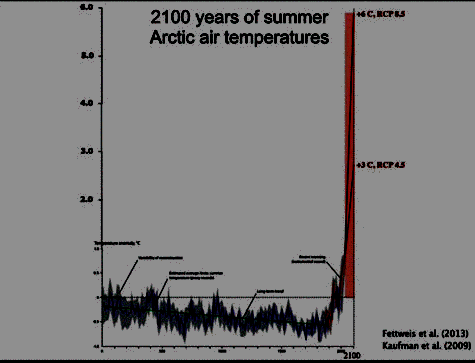Transcript
A tweet saying “bruh the economy isn’t even real, we literally fucking made it up, just let people have food wtf”
When America conquered Japan at the conclusion of WW2, America overhauled their economic systems. The Zaibatsu were largely dismantled, policies to spread out wealth were installed, and many other things were done to nip totalitarianism and militarism in the bud. While this was purely for selfish reasons, this initiative transformed Japan into a place of prosperity.
It is my hope something similar happens when a 2nd American Civil War is concluded. A rebalancing of the scales is sorely needed, so that the American dream can become reality for all.
“If we gave them food and housing, how would we force them to perform the labor that generates all my wealth?”
-1%
You make rice, beans, most veggies and micro-apartments ultra cheap and subsidized, so everyone can at least survive. People will be motivated to upgrade, which incentivizes work.
“The Economy” = Rich People’s money.
Naive looking titles like these are effective ammo against the people who use it.
Basic economics is as real and essential as law or human language, despite being made up. The problem lies beyond the basics; the stock market has largely become a pyramid scheme that glorifies gambling, which cryptocurrency does by default. It’s all of these greed-inducing humanity-destroying contraptions that deserve relentless mockery, defiance, and ultimately, subversion. We need a system where profit is a vice, not a virtue.
✍︎ arscyni.cc: modernity ∝ nature.
yeah we made it up, but unfortunately for you we made it up so fragile that if someone sneezes too hard you might wake up homeless tomorrow, so we can’t just allow people to have food sorry. just drink fewer lattes, ok? it’s gonna be fine don’t think about the poors.
It basically is. I remember in 2008 going outside and the birds were tweeting, people were still going around as normal etc. Basically we were told there was no money for anything and people were being laid off because some numbers in a computer said so. The mechanism that was supposed to make sure there was money for starting and developing enterprise imploded and fucked us instead.
A LOT of people in this thread seem to completely miss the fact that something is a social construct is can still definitely be real.
Monday is a social construct, but I’m still expected to go to work.
Big woosh.
And work weeks used to be 80+ hours, but we changed that. Hell we could change Monday if we had the political willpower.
Hunger is real in the sense that the human body becomes nutritionally deficient regardless of our will whereas the validity of modern food scarcity is a sociopolitical consensus.
e.g. One can swim in the ocean but cannot reason with it.
Work weeks used to be 80+ hours, and “we” changed that, but it wasn’t by requesting or voting or something. It was via violent riots involving police beatings and explosives being thrown. And it took decades.
Changing things that the rich prefer to remain unchanged can be done, but it isn’t easy or fast.
Surely they will come to their morals and give up a small portion of the money they won’t ever get to spend fully for betterment of humanity.
Of course we can change Monday. It’s a social construct. We made it. We can unmake it. We can make it into something else. That’s the point. It’s also real.
Just like a house is real after we’re done building it.
We’ve built a machine that produces famine. It does not have to exist. But it does. The machine is real. If we want to get rid of it we have to actually tear it down. Again, like a house.
The operative word in social construct is not social. It’s construct.
I think you’re really getting hung up on the fact that many people consider abstract concepts to not be “real”. Monday is not an inherent and tangible thing, it’s not possible to sense it in any way. You can’t go outside, look at the sky and go “yep, it’s Monday”. That might not be how you choose to define the term “real”, but plenty of people do define it that way.
Then you’re angry about people using hyperbole to make a point about the evils of the powerful.
That’s a bit pedantic.
Real in this sense is just being poignant about how the powerful rely on false appeals to the authority of things like the economy to evade responsibility and culpability.
I am strict about meaning BECAUSE it’s important to face the reality of our oppression. I’m baffled I need to explain this to fucking anarchists.
But saying the money/scarcity/economy is made up is pointing directly at the reality of our oppression. It’s pointing out that people are being oppressed because it’s profitable, or there’s political will to cause suffering, that it’s an active choice.
Yes, concepts exist and they’re real in the sense that there’s neurochemical pathways in brains, ink on paper, electrons flowing, and an impact on how goods are distributed. No one is arguing the concepts don’t exist.
I think you’re misunderstanding the context/nuance, or implication here.
Yes, but hopefully you can see that if there was a rule that said you aren’t allowed to eat on Mondays, how people might start to question the legitimacy of the concept of a Monday.
What are you talking about? There are many such rules, but somehow blaming Monday seems like REALLY missing the point.
Cool. What’s the point of monday? Is it the only way to do that? What are the costs of monday? Versus these other options? Are they worth it? How much trouble would be caused by replacing monday with somethiny better, or deemphasizing monday?
How many dead children is monday worth? How many lives ground into grey dust, how much human potential for beauty and art is monday worth? How much labor wasted on keeping track of ‘deserves’ and resources wasted on enforcement is monday worth?
What is the worst and slowest way you’ve watched someone die, when a society that organized itself more sensibly might have saved them?
Are you ok sir?
Cool, assuming guy (not) and gaslighting. Love it.
I assure you the interaction was very mid for me too, madam.
Economies, money, governments - are all made up representations of societal will. People can change that any time they want, but we let the narcissistic monsters with power run things unopposed because it’s easier.
Economy is very much real, and it’s funny to see Anarchists say shit like this, can’t beat the stereotype. Production and its distribution is global, you have to know what and how much to produce either via the use of markets (capitalist) or planned economies (socialist/communist) or via other modes of production and distribution.
You could previously make most things locally so these concepts didn’t exist, but that’s only because people were mostly living the life of a peasant, but now you have tech, advancements in medicine, and not every state has these kinds of resources.
However, the mainstream economics and its models are bullshit, the more complex people make them the more de-attached from reality they are
I believe that economy can be both a social construct, and very much real
Yes, it is something created by humans that only makes sense in a social setting and doesn’t have any ties to the natural world
Yes, it also is necessary and there can be “certain rules” with universal effect, but we are still able to shape the definitions and our views according to human necessity
As a minor gripe: planned capitalist economies are a thing (there is no contradiction in it whatsoever)
Also, I’d like to point out that your reply to the allegations in the meme are very justified given the “is not even real” sentiment, using the “social construct” card to toss everying in the bin is a very much dumb take and it prevents any meaningful discussions
(But I get that the intention was to put it in a less “rigid” structure by pointing out we can change it)
Yeah, there’s mixed economies too and other models, forgot to put an etc in there.
So you’re saying that the economy is not a social construct?
Yeah, apart from the voodoo magic such as finance and whatever economic models economists talk about, which when failed they use more voodoo shit to justify why.
Economy in terms of distribution and production, that’s real and will exist from mercantilism to communism and maybe beyond given our globalized economy.
I mean, yeah I hear what you’re saying when the broad definition is used. It does cover production, distribution and consumption of goods. But the tweet is talking about "the economy" which could arguably be referencing the current, capitalist economy which we did indeed “just make up”.
you have to do one of these two things that i like
Nope. Plenty of other models! Not all coordination needs hierarchy, and the illusion that hierarchy just magically erases the massive labor costs of communication and coordination is fucking delusional.
Just because you can’t see it, or replace your delicate maintenance with thugs who hit things until they stop doing the thing you dont want, because you throw people away when they dont fit your cental and limited by necessity of being so fucking central vision is delusional arrogant and pathologically individualist great-man fetishizing bullshit.
Cutting the community out of communism because you dont trust their assessments is insane. Cutting the hard work of (re)conciliation and coordination and replacing it with 10x the work hours of means testing and violence and the mess that comes with making things function at a low level when the necessarily limited perspective of a central authority imposes impossible or harmful bullshit on you because the bandwidth and trust to observe and administer competently just does not exist is insane.
While the tweet cited is admittedly an unsophisticated and crude understanding/expression, i would say its far closer to correct than your statement. Maybe don’t make onboarding new people to the left any harder than it has to be?
This is clearly a case of us having entirely different meanings of words like ‘planned’. At minimum.
I literally didn’t say anything you’re arguing against, so I’m kind of confused.
I’m unsure you know anything about economies either given how you only scream about hierarchies - sure, some economic systems support hierarchical structures such as capitalist market economy supporting itself and the class society that comes with it.
However, regardless of whether hierarchy exists or not, there will have to be an economic system in place, so we know what to produce and how much of it, else you either overproduce and create a fuck ton of waste or underproduce and have people starve.
Under both communism and anarchism, things would be produced to satisfy needs, rather than for profit that is seen within market economies. There would be no commodity exchange, things being distributed to whoever needs it and during production, you’d have a set amount of goods you need to produce to satisfy those needs AKA planned economies which is something you think is worse than hitler given your response. Of course, there’s also niche anarchist sects that are mutualist/ancom or voluntarist (which are the laughing stock within Anarchists themselves who actually read), but that’s another can of worms and really besides the point.
Whether you have a centralized unit managing the production and distribution of everything or if you have each commune manage their local production and communicating with other communes to get what they can’t produce, it’s still a planned economy - it can be both decentralized and centralized, organized in different ways.
Maybe don’t make onboarding new people to the left any harder than it has to be?
I’m not here to onboard people, but rather educate on topics I know something about.
Economics is closer to theology than physics as an intellectual discipline. Its power is proportional to the belief it commands.
Finance is an arbitrary subset of mathematics, cherry picked by the owning class, and applied as their supporting mythology.
It’s entirely imaginary, which means alternatives are only ever a conjuring away.
Economics is closer to theology than physics as an intellectual discipline. Its power is proportional to the belief it commands.
Person with degree in Econ here:
Ah, yep. This is correct.
Our theologies tend to have more numbers than most religions, but most economic ‘schools of thought’ pretty much are just warring religious sects, the dynamics are quite similar.
That being said, I am speaking of the kinds of ‘economics’ the vast majority of people will ever hear about, due to how at least in the US, we mostly only popularize and give media time to what Academic Economists largely consider to be idiot crank fraud propogandists.
There are some actually good modern Academic Economists who you’ll hear from or about, from time to time, and they often are highly respected and credible because they have the capacity to consider the varying ideological/religious flavors of economic sects, and pick the parts of each of them that seem to actually be well evidenced, and make functional/causal sense, without discontinuity or contradiction.
Like uh, I myself can tell you that I find a lot of Marxist economics to be compelling and accurate, but, some of its proposed exact ideas on how prices and pricing work… are problematic.
Conversely, while I find the vast majority of Austrian economics to be voodoo bullshit, I do think they have at least a core framework of how to approach some dynamics in monetary policies that actually do track with reality better than most other economic ‘schools’, such as MMT.
What I mean is that they tend to pay way, way more attention to the different uh, levels, or kinds of money, and how they circulate around and interact with things like bond markets and interest rates, and from this you can get a more holistic picture of the actual state and behavior of monetary and financial systems… whereas a lot of other economists just hsnd wave away that complexity, and then come up with more ad hoc explanations for things that a sort of Austrian-derived monetary view can give you some useful predictive indicators from.
And, just to clarify, I am not an academic myself, just got to a specialization in econometrics and then went to work as a data analyst / ‘scientist’.
(I always found the job description of ‘data scientisr’ to be largely a misnomer, we’re basically just a flavor of statisticians? but sure, we are a scientist because boomers think knowing how to do stats on a computer is ‘science’? like we are… discovering new truths about the world???)
I’d say if you want a crash course in some non bullshit modern economics, check out uh, Richard Wolfe, Joseph Stiglitz, Yannis Varoufakis, Robert Reich.
Also, check out Paul Samuelson, who in his time did actuslly strongly push for using more robust and complex math (for economists, anyway) by borrowing from physics.
Oh right and we cannot forget the Beautiful Mind himself, John Nash, who also did a lot of serious, basically genius level math, and more or less made Game Theory into a massively useful and applicable framework for evaluating how and why agents make which choices in basically any definable scenario.
Really, he is a mathematician, not primarily an economist, but I at least find Game Theory to be a fundamentally necesarry tool in any serious economist’s toolkit, and Nash did win an Economics Nobel.
I can’t stand Wolfe for some reason and I’ve never seen any type of rigor from him. I read his “Democracy at Work” book, and he came up with the term “worker self-directed enterprises,” and kinda presented it as a novel concept when they were pretty much just another name for worker cooperatives. I’ve always liked Krugman’s articles/blog because he does get a little “wonkish” sometimes; I think he’s considered “New Keynesian” or something like that. Varoufakis and Reich are cool. Oh, there’s a youtuber I recently found, “Garys Economics,” which is pretty good (though he’s an ex-finance guy, not an economist).
Yeah this is kinda what I mean about Marxist economists: Broad strokes, high level, followable narrative that jives with overall aggregate data, often emphasizes important dynamics that others just totally do not mention, or garble-explain with technobabble?
Yes, good, generally very insightful and accurate in many ways.
But, when you go down to the nitty gritty level… it either just isn’t there, or is pretty clearly just wrong.
Like I’m sorry, but you can’t build a microeconomics based off of only the labor theory of value, it just does not work.
You can use it in certain situations where it becomes a reasonable approximation, but it is far from comprehensive.
And yes, I also find Krugman to be insufferably wonkish, I also still hate him for basically going along with bailing out the banks in the 08 GFC, instead of fucking jailing their execs and/or at least temporarily nationalizing them.
And and, Gary’s Economics is also generally good, though I haven’t seen too much of his stuff.
Economics nobel isn’t real.
Game theory rarely stands up to everyday activity or population level moves.
Game Theory is actually widely practical and useful if you actually have extensive formal training in all of its variations wnd complexities, and know how to use it properly.
Game Theory is a lot, lot more than just ‘the prisoners dilemma’.
And yes, the Economics Nobel technically isn’t a real Nobel, but also, the whole theme here is that Economics behaves much like a religion, and many/most economists and just general people treat it as if it is extremely meaningful.
To make this even more meta:
You can at least broadly model that with Game Theory, if you take into account a robust model of imperfect information, and how the transmission of information (or lack thereof) alters the preferences, ‘beliefs’, and thus decision making of actors in a connected system.
EDIT:
Anyway, the point of me mentioning Nash and his Econ Nobel is to illustrate that a lot of serious economists also find his work to be extremely important and relevant to economics.
is a religion
This part i do not disagree with. They’re the priestly caste of capital.
game theory narrow uses
Sure, but not for the ones i said-everyday behavior and population level shit. I did specify.
people are rational. They behave sensibly and consistently with limited information
Yeah, totally.
Sigh.
Again, most actual serious, modern academic economists will tell you that no one in power actually listens to them, the powerful just pick idiot cranks with an Econ degree like Art Laffer to justify their ridiculous policies.
Its more complicated than you are simplifying it to.
…
Also, no, you did not specify anything about what you meant irt game theory applications.
You said it isn’t applicable to broad populations and everday activity, and I said it is broadly applicable to many things… which would include what you say it doesn’t cover.
A rather well known, other cross domain use of game theory is to explain the popularity of different mating strategie of various animals.
You can use similar models and apply them to humans, and it works well also.
…
Finally, your last point in particular reveals your total ignorance of game theory as a concept:
Yes, much of economics is oversimplified to the point that all actors are assumed to be perfectly rational with perfect information.
Game theory is specifically extremely useful to counter this obviously false assumption.
Game theory excels in giving you the ability to model more realistic, actual kinds of decisions that actors actually make… because it is specifically very useful in modelling how different actors with different levels of different information actually act.
This can be used in more comprehensive economic models, and the result is often a much more accurate to real world representation of how people and companies and governments actually act, as compared to the oversimplified economic models where perfect information is just assumed.
didn’t specify
Shit, whoops. Meant to. Have now.
oversimplified
Yeah, economics
don’t understand
I’m not an expert, but I’ve read some and played around with it, and the work required to make it not-bullshit are basically never used by it’s advocates. It’s sort of in the same category as large (thing) models; an expensive but useful niche tool that does more damage with its misuse than it could ever provide in value

The pyramids of giza are obviously fake, capitalism wasn’t invented yet so there was no innovation
yeah, it was slavery, which is worse
It wasn’t capitalism, but the means of production don’t seem like they were owned by the population but rather individuals still. A theocratic monarchy is the closest I could guess to call it. So basically if the U.S. is almost there
True, but this was referring to people saying that innovation won’t happen without capitalism.
Yeah, everyone has dreams. Sometimes it’s MLK, other times it’s Pharaohs. An actual democratic communist society would be nice, but I’m afraid I’ll never get to try it out
Defeatism is a poison to progress.
How could they plan this without Starbucks and Microsoft Teams?!
Imagine the scale of the HR department alone.
Oh, I know this one! Slaves… Lots and lots of slaves.Probably not, actually! Or at least, not usually. There were a lot of pyramids built over a very long period of time, and ancient Egypt definitely did have slavery in general, so I’m not going to claim there was no slavery involved. However, due to the records we have of the workers getting paid and when they worked, it’s thought that most of the labour was done by farmers during the annual Nile floods since they couldn’t work their fields at that time anyway
Next question, was the mass slave image created to help push the biblical idea of an oppressed society saved by their deity?
I’m only guessing here but probably egyptian society had lots of classes and some of them were poorer than others, so it could still both be true: Egypt had not slaves, but very poor people, who felt like slaves. or sth
I think they’re referencing the ancient Israelites specifically. As the story goes, they were slaves in Egypt. Yahweh sends enough plagues to make the pharaoh release them, and then he gets Moses to guide them to a new home. The historicity of this is doubtful; there absolutely could have been a group of slaves in Egypt that got free and went to what would becone Israel, but there’s no non-religious evidence for much of the rest of it.
Since the story is a kind of foundational tale for both Judaism and Christianity (and possibly other Abrahamic faiths like Islam, but I don’t personally know about them), there’s a strong motivation to look at these incredible buildings and say, “That must have been so much work that it could only have been built by forcing people to work on it. And look, the bible/pentateuch says the Israelites were slaves in that place and time.”
Like a Serfdom
I’ve no idea, but that does sound like quite a plausible theory
Hmm, learn something new every day!
I thought that was a myth? [source]: a book I read 4 years ago
Everything starts to make sense when you realise “The Economy” is just a euphemism for “Rich People’s Interests”.
you have to distinguish between “The Economy”, which is the stock market, which is rich people’s interest, and the “socio-economic situation”, which is how much resources the normal people have as income and as cost-of-living.
Of course. I’m just referring to the usual propaganda version, which I believe OP was too.
It’s made up by people who couldn’t provide value to society and had to figure out something lest they be left to fend for themselves.
I disagree, economy is just a term describing trade between people. It means that ypu dont have to be a farmer or fisher to feed yourself, but can be a mechanic and still get fed.
I do agree that the system has been exploited by greedy people with no moral or sense of compassion for fellow human.
Exactly. The only reason that it’s even vaguely possible to feed the average person in a modern western society is “the economy”.
In the 1500s about 60% or more of the population were farmers. In the 1800s once mechanization became available, it dropped to 30% in some places. These days it’s only about 5% or less.
A tiny number of farmers can support the needs of hundreds of millions of people because of the whole clockwork system we have to get food from the farms to the table, and then get the money back to the farmers so they’re willing to keep doing it. Meanwhile other people build tractors, other people make fertilizer, other people make tires for tractors, other people work on the buying and selling of commodities like grain. And, of course, most people do things completely unrelated to farming.
This whole clockwork system is far from perfect. It wasn’t carefully built to be the best possible system, it evolved over time due to pressures and incentives. There are plenty of useless “cogs” in the system. But, if you smash the system, people start dying of starvation within a few weeks. Even if you make sudden unexpected changes to the system without first studying it, you end up killing people. The DOGE people thought USAID was wasteful, so they removed a few parts of the system. Not only did that cause a lot of death from people depending on the food aid, it also massively hurt the farmers who were counting on USAID buying their crops.
I’m pretty sure their comment was pertaining to the current economy we live in, not “economy” as a concept itself.
Idk though, just offering the benefit of the doubt.
Economy is the new god, it even has priests and bishops and shit.
Why shouldn’t I do X? Because it’s bad for the economy, we can’t stop climate chage, that would be bad for The Economy. Etc
It’s as real as words are.
And language changes all the time
One was created to transmit ideas, the other to transmit value. Very related. Both can be abused by those in power.












